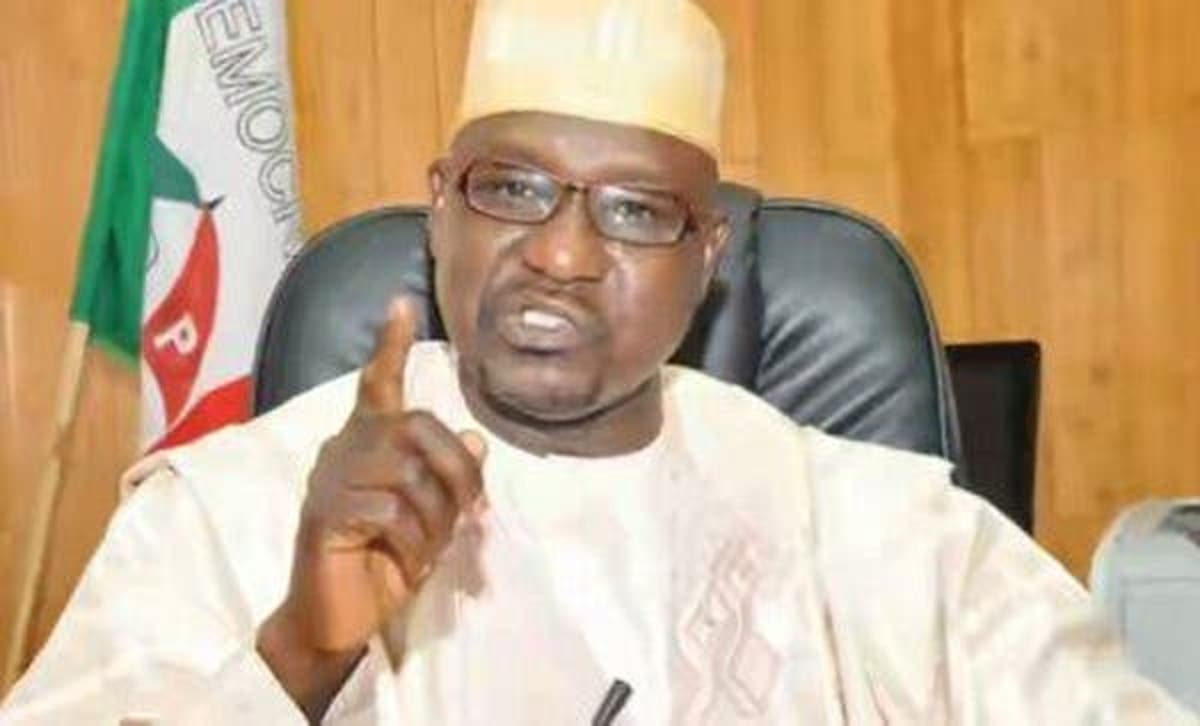The stone-hearted murder of Ahmed Gulak is still arguably unresolved. Gulak, the former Political Adviser to Goodluck Jonathan, both in his capacity as Vice-President and also President, was murdered in Owerri on the day the Indigenous People of Biafra (IPOB) declared a sit-at-home order in the entire states of the South-East to commemorate Biafra day. He was on his way that early morning to the airport when the vehicle conveying him was stopped. He was shot and left to die on the road. Early reports by the police indicated his killers identified as IPOB vigilantes were intercepted and also killed, in an exchange of fire. Nevertheless, others have argued that since he was singled out among the occupants of the car he was travelling with and shot by the assailants it looked like a targeted killing.
- Democracy Day and Buhari’s unsung democratic credentials
- Oyegun to Buhari: Deliver the change you promised Nigerians
The murder of Gulak naturally ignited umbrage across the country, particularly in the northern part. Why the anger became more accentuated in the North was because the citizens of that part of the country have been at the receiving end of the IPOB campaign, which had lately turned violent. Northern traders have suffered unprovoked wanton attacks by IPOB campaigners. In the markets, they became victims of mass murder and arson having their wares destroyed. Cattle traders made unquantifiable losses to the IPOB brigands who just drove away their herds after decimating the owners. Some of the most recent victims were the onion traders who lost many vehicles filled to the brim with onions. In fact, because of the rapidity of the attacks the traders suspended the supply of onions to that part of the country.
IPOB fury had similarly been turned fully against public institutions and national assets. Those in uniform, the police, army, customs, immigration have all felt the brunt of the IPOB terror. Their barracks and offices were brazenly attacked, their men killed and arms and ammunition carted away. One of the most infamous of the attacks was the one that targeted and destroyed the state police headquarters in Owerri where many policemen lost their lives and many government properties were destroyed. The mob also attacked and opened up the state prison to allow over 1800 prisoners to escape.
Another of the most targeted of the national institutions is INEC whose offices have so been wilfully destroyed by IPOB terrorists. At the last count, many of INEC offices, spread around the local government areas of the South Eastern states, were attacked. Vehicles, motorcycles, lots of office equipment including sensitive and valuable material were destroyed.
It was in the midst of these mindless atrocities by IPOB in the South East, that Gulak was targeted and eliminated. Obviously the murder became figuratively the last straw that even shook the belief of some of the most ardent believers in Nigeria’s unity. Many started to ask whether it was now time these states held captive by IPOB to have their wish of a Biafran nation. Surprisingly, it was the Coalition of Northern Groups (CNG), an amalgam of northern civil society organisations, that fired the first salvo. In a well-circulated letter, the CNG’s Chairman, Board of Trustees, Nastura A Shariff reviewed the attacks on national institutions, killing of traders from northern states as well Gulak’s murder and concluded: what the heck, let Biafra go. The loss of lives and destruction of properties was not worth keeping them within the Nigerian state.
Surprisingly, many other groups within the north are now following in tow. Even the Northern Elders Forum (NEF), normally staid in their utterances, have jumped on the idea and are encouraging the country not to stand in the way for Biafra to materialise. This much was said by Hakeem Baba Ahmed, the spokesman for the forum. He said: “It will not be the best choice for the Igbo or Nigerians to leave a country we have all toiled to build and a country we all have the responsibility to fix, but it will not help a country already burdened with failures on its knees to fight another war to keep the Igbo in Nigeria.”
I doubt if these sentiments would wash on the president who in his youth fought against the secessionists in the civil war of 1967-70. Those old soldiers are just fanatical about the oneness of the country. May be that explained his anger against IPOB’s campaign of terrorism. Reminding them of the civil war, he said: “Those of us (who fought) in the fields for 30 months, who went through (that) war, will treat them in the language they understand. We are going to be very hard sooner than later.”
This hardline stance of the president notwithstanding, former Governors, now Senators, Rochas Okorocha and Orji Kalu have distanced themselves from the secessionists. One can understand from where Okorocha and Kalu are coming from. Both have had a long association with the North. Okorocha attended the University of Jos and has flourishing schools in Jos, Kano and Sokoto. Orji Kalu ran a successful business venture in Maiduguri in the 1980s. Many of us who were his close friends in Maiduguri then, still have fond memories of the association. One can understand why Nigeria remains important to them.
This notwithstanding, more of the elites from the South-East need to voice out for our continued stay together, for the union to survive.

 Join Daily Trust WhatsApp Community For Quick Access To News and Happenings Around You.
Join Daily Trust WhatsApp Community For Quick Access To News and Happenings Around You.


